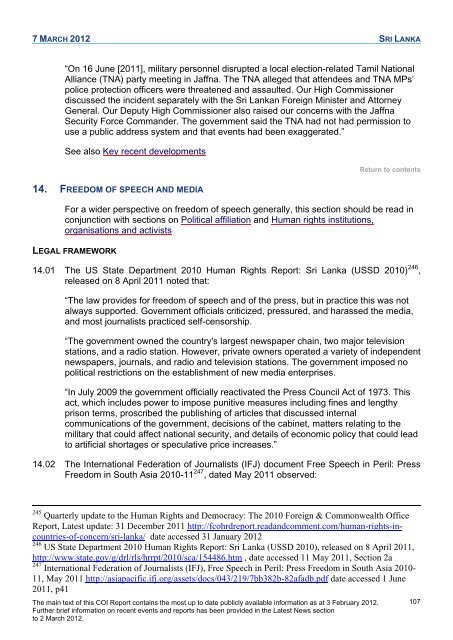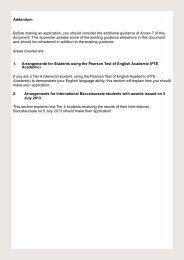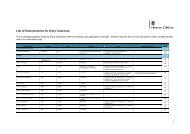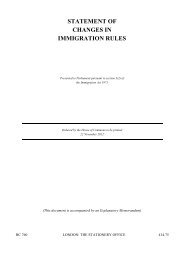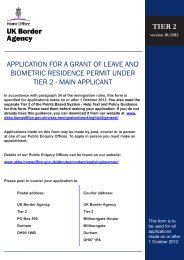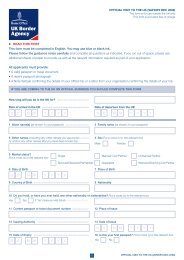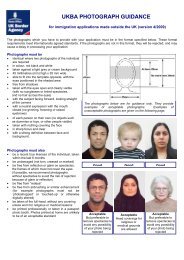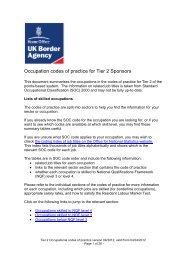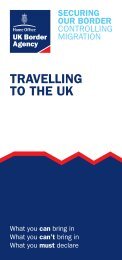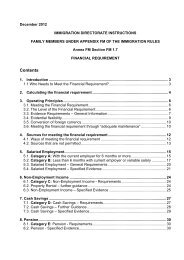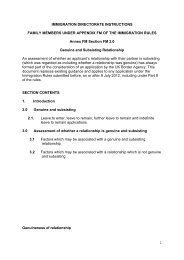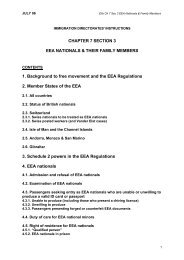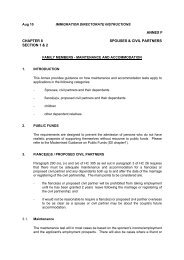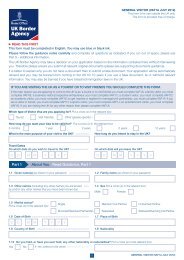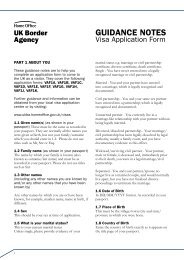COI Report March 2012 - UK Border Agency - Home Office
COI Report March 2012 - UK Border Agency - Home Office
COI Report March 2012 - UK Border Agency - Home Office
Create successful ePaper yourself
Turn your PDF publications into a flip-book with our unique Google optimized e-Paper software.
7 MARCH <strong>2012</strong> SRI LANKA<br />
―On 16 June [2011], military personnel disrupted a local election-related Tamil National<br />
Alliance (TNA) party meeting in Jaffna. The TNA alleged that attendees and TNA MPs‘<br />
police protection officers were threatened and assaulted. Our High Commissioner<br />
discussed the incident separately with the Sri Lankan Foreign Minister and Attorney<br />
General. Our Deputy High Commissioner also raised our concerns with the Jaffna<br />
Security Force Commander. The government said the TNA had not had permission to<br />
use a public address system and that events had been exaggerated.‖<br />
See also Key recent developments<br />
14. FREEDOM OF SPEECH AND MEDIA<br />
The main text of this <strong>COI</strong> <strong>Report</strong> contains the most up to date publicly available information as at 3 February <strong>2012</strong>.<br />
Further brief information on recent events and reports has been provided in the Latest News section<br />
to 2 <strong>March</strong> <strong>2012</strong>.<br />
Return to contents<br />
For a wider perspective on freedom of speech generally, this section should be read in<br />
conjunction with sections on Political affiliation and Human rights institutions,<br />
organisations and activists<br />
LEGAL FRAMEWORK<br />
14.01 The US State Department 2010 Human Rights <strong>Report</strong>: Sri Lanka (USSD 2010) 246 ,<br />
released on 8 April 2011 noted that:<br />
―The law provides for freedom of speech and of the press, but in practice this was not<br />
always supported. Government officials criticized, pressured, and harassed the media,<br />
and most journalists practiced self-censorship.<br />
―The government owned the country's largest newspaper chain, two major television<br />
stations, and a radio station. However, private owners operated a variety of independent<br />
newspapers, journals, and radio and television stations. The government imposed no<br />
political restrictions on the establishment of new media enterprises.<br />
―In July 2009 the government officially reactivated the Press Council Act of 1973. This<br />
act, which includes power to impose punitive measures including fines and lengthy<br />
prison terms, proscribed the publishing of articles that discussed internal<br />
communications of the government, decisions of the cabinet, matters relating to the<br />
military that could affect national security, and details of economic policy that could lead<br />
to artificial shortages or speculative price increases.‖<br />
14.02 The International Federation of Journalists (IFJ) document Free Speech in Peril: Press<br />
Freedom in South Asia 2010-11 247 , dated May 2011 observed:<br />
245 Quarterly update to the Human Rights and Democracy: The 2010 Foreign & Commonwealth <strong>Office</strong><br />
<strong>Report</strong>, Latest update: 31 December 2011 http://fcohrdreport.readandcomment.com/human-rights-incountries-of-concern/sri-lanka/<br />
date accessed 31 January <strong>2012</strong><br />
246 US State Department 2010 Human Rights <strong>Report</strong>: Sri Lanka (USSD 2010), released on 8 April 2011,<br />
http://www.state.gov/g/drl/rls/hrrpt/2010/sca/154486.htm , date accessed 11 May 2011, Section 2a<br />
247 International Federation of Journalists (IFJ), Free Speech in Peril: Press Freedom in South Asia 2010-<br />
11, May 2011 http://asiapacific.ifj.org/assets/docs/043/219/7bb382b-82afadb.pdf date accessed 1 June<br />
2011, p41<br />
107


